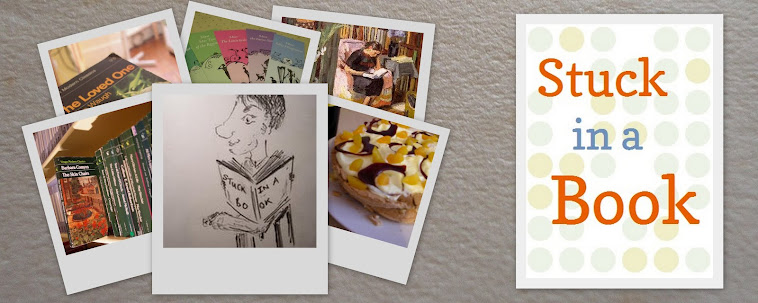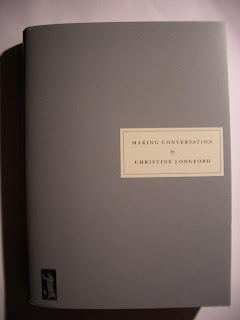 ad the Foreword. Which I will now quote in full:
ad the Foreword. Which I will now quote in full:'This is a book on Etiquette for Ladies, neither of which or whom now exists, as everybody knows; so the whole thing, both from my point of view and from yours, is the most shocking waste of time, and I have really no idea how it happened. The only thing that can be said for it is that it will not help you in the least to be a lady, which is all to the good as I believe it is not a desirable status, but it may make you laugh, which is always nice, even if this, also, is a waste of time. It may, of course, do nothing of the kind, which will be an enormous pity.'
Thus set up, how could I resist? Published in 1949, Say Please is a tongue-very-much-in-cheek guide to everything from leading committees ('A very good Chairman never lets anybody speak at all but assumes with perfect confidence and with a perfect disregard for the truth that everybody is in agreement') to dealing with an ill relative ('any information he cares to give must be regarded as puerile... If a patient insists on being spoken to, then he must be addressed in the third person as though he were a baby.')
This book, though obviously not meant to be an accurate reflection of everyday life, does still give a snapshot of the obstacles faced by the 1940s woman. Still sections on huntin' shootin' fishin', and servants - but also how to deal with rationing and post-War discussions. Not forgetting the Tennis Party, present in so many books of the early twentieth century, now a thing of the past. The section on Tennis included an epigraph from Harry Graham (her father): "She also served but mostly stood and waited". A-ha-ha-haaa, if you've read your Milton.
A pseudo-etiquette guide may not seem immediately your cup of tea, but any fans of The Diary of a Provincial Lady are advised to get a copy of Say Please: the humour is often quite similar. There are quite a few cheapish (£2-3) secondhand copies on Amazon and abebooks, and doubtless elsewhere. A few editions appear to have been printed in the late '40s and early '50s, but nothing since... it seems to linger on only in collections of sporting quips. Say Please could be a good candidate for a reprint, only which market would it fall into?
One of the funniest books I've read this year, and might well make my top ten of 2009... I'll leave you with a quotation from the section on Invitations.
After reaching a certain age it is legitimate to throw etiquette to the winds and be frank. In society, and indeed out of it, frankness is considered very bad-mannered, and that is why one has to be of a certain age before one attempts so drastic a measure. (How certain the age is can only be ascertained when one reaches it.) Then, in a voice nicely balanced between self-depreciation and arrogance, one can say: "No, Jane! It is sweet of you, but you know how stupid I am? I simply loathe the country in the winter and nothing in God's earth will make me come to Norfolk in November! I'm sorry, darling. I love you, but NO". This type of remark, firm but loving, resolute but begging sympathy is unfortunately dreadfully wounding, but on reaching that certain age (curse the thing) one prefers, alas, to wound rather than go to Norfolk.
Remember that to get a name for not going out eventually means you will not be asked out. This is rather a bore, for the whole charm of life lies in being asked everywhere and going nowhere. When you are a very old lady living in one tiny room with only one tiny frayed aspidistra for company, you may wish you had gone to Norfolk after all and kept up with dear Jane, who is still being photographed blowing, with her last remaining breaths, down a hunting horn at local Hunt Balls.






















